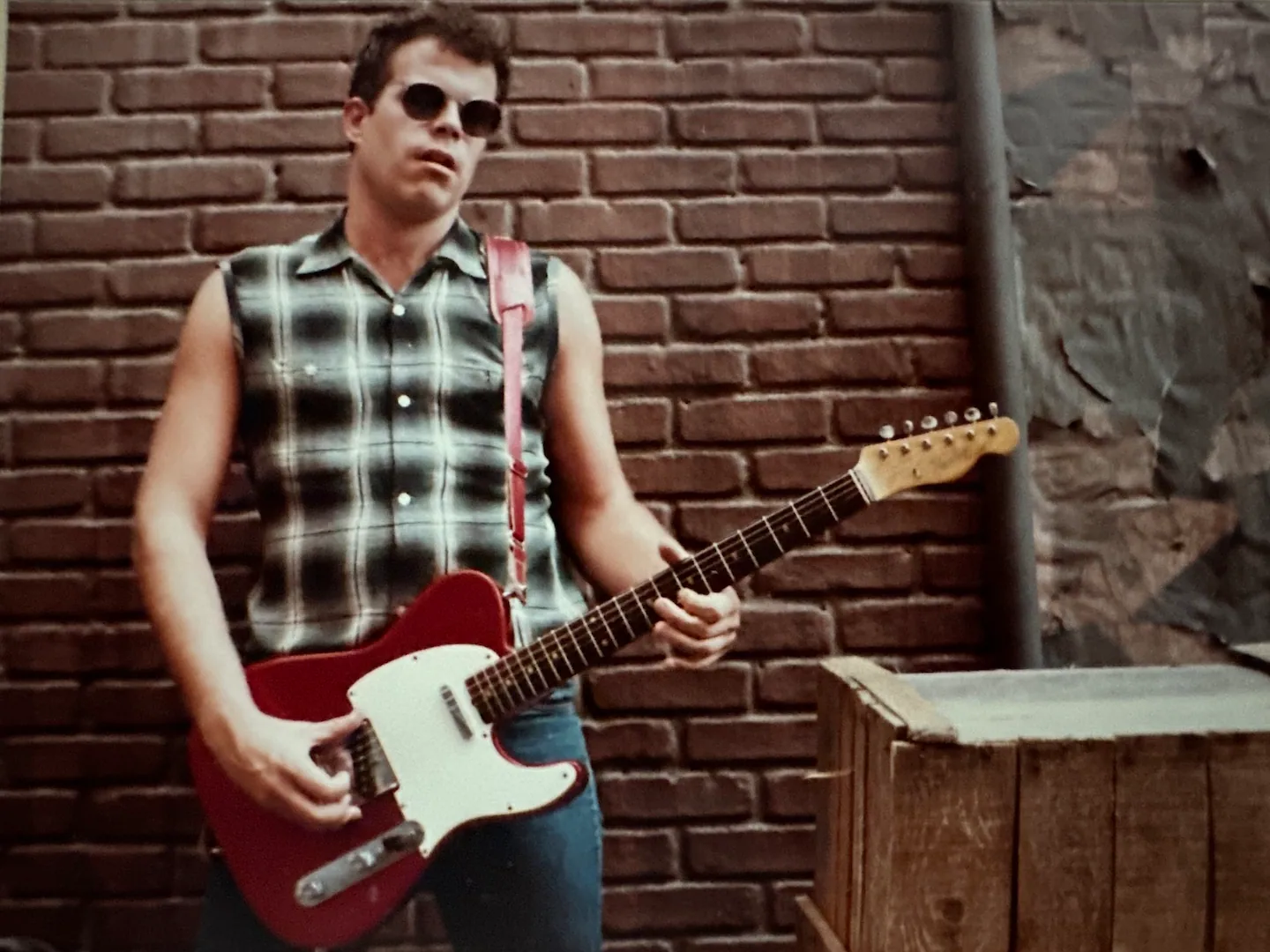
“It broke Stu’s heart,” said Michelle Keegan-Kimball, his wife of 15 years.
At the time, there were some rumblings that the guitarist was having difficulty keeping up with Dylan’s musical demands. “He seemed to not be following stuff, not remembering,” said Keegan-Kimball.
Eventually, the reason for the dismissal became clear when Kimball was diagnosed with the early stages of memory loss. Doctors initially decided they were seeing the onset of frontotemporal dementia (FTD), a diagnosis that has since changed to Alzheimer’s disease. Kimball’s friends and fans have been rallying to support his need for care, which in recent months has grown more urgent.
Originally from New Hampshire, Kimball started the band Face to Face in the late 1970s with fellow guitarist Angelo Petraglia, drummer Billy Beard, and bassist John Ryder. After moving to Boston, they recruited singer Laurie Sargent, who had been a few years behind Kimball in high school.
In school, Sargent said, “Stu was literally like a god,” with a wild head of hair, tinted glasses, and a guitar ever-present in his hands.
Leaning into the new wave sound of the time, Face to Face established themselves in Boston before signing to Epic Records, where they found success on MTV with their song “10-9-8.” From the start, Sargent said, Kimball’s harmony singing was just as impressive as his guitar playing.
“Certain people are born with this conduit from another place,” she said. “His guitar playing is so natural and ‘thought-less’ – it just comes out of his hands, and he doesn’t have to think about anything.”
But frustrations with the music business eventually led to the breakup of Face to Face, after a decade and three albums together. Kimball moved to Martha’s Vineyard, where he ran a studio and formed a new band called Drawn Butter. In 1996 he helped Peter Wolf settle into a new stage of his career with the album “Long Line,” for which Kimball served as a co-producer.
“We used to get together almost every day,” said Wolf. “For a while, he even lived in my apartment.”
“It was all about music and camaraderie,” Wolf continued. “We’d hit the same clubs and bars, smoke cigars, and roll into that sweet good night. He had a wonderful ear, a unique touch.”
Kimball and Michelle met while he was on tour with Twinemen, the band that Sargent, Billy Conway, and Dana Colley formed after the sudden death in 1999 of Morphine frontman Mark Sandman. He was looking for a steady gig when Wolf mentioned his name to Dylan’s team, who were looking to audition new players. The original assignment was for six months, Sargent recalls, but it lasted 14 years.
“It was so cool to see Stu travel the world” with Dylan, she said. “It still just makes me grin. He so beyond deserved it.”
Seven years after losing the Dylan gig, Kimball is still playing guitar. “He plays all the time,” said Keegan-Kimball, “and it sounds amazing.”
But he tends to repeat certain riffs over and over, she said, and he can no longer play live with others. Not long ago, his wife and the bandleader Jimmy Ryan decided to let Kimball’s appearances with Ryan’s group, Hayride, come to an end.
Increasingly, said Keegan-Kimball, her husband can’t find the words to express himself. Alzheimer’s sufferers often “can’t do the first step, like making themselves a coffee,” she said. “They don’t know they need a cup.
“He has declined precipitously over the last year or so,” she said.
So much so that she has allowed friends to launch a GoFundMe to help defray the mounting costs of her husband’s medical care and get him into a live-in memory care facility. At first she refused the offer, she said.
“I think I thought it wouldn’t happen to me – that I wouldn’t get burned out,” she said. “It was like, ‘I have to take care of Stu, what’s the big deal? I can do it.’”
But his condition is rapidly approaching the point where he’d be “happier and better cared for” by receiving around-the-clock care, she said.
“He still plays great,” Keegan-Kimball said. “He has a feeling that just comes out of him. But he used to be, like, a one-take wonder.
“And that’s not how it’s working anymore.”



